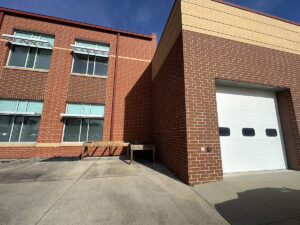News
Riverkeeper, specialist seeking spiders
Environmental, Neuse River Watershed, Sound Rivers, Water Quality
Posted on September 11th, 2024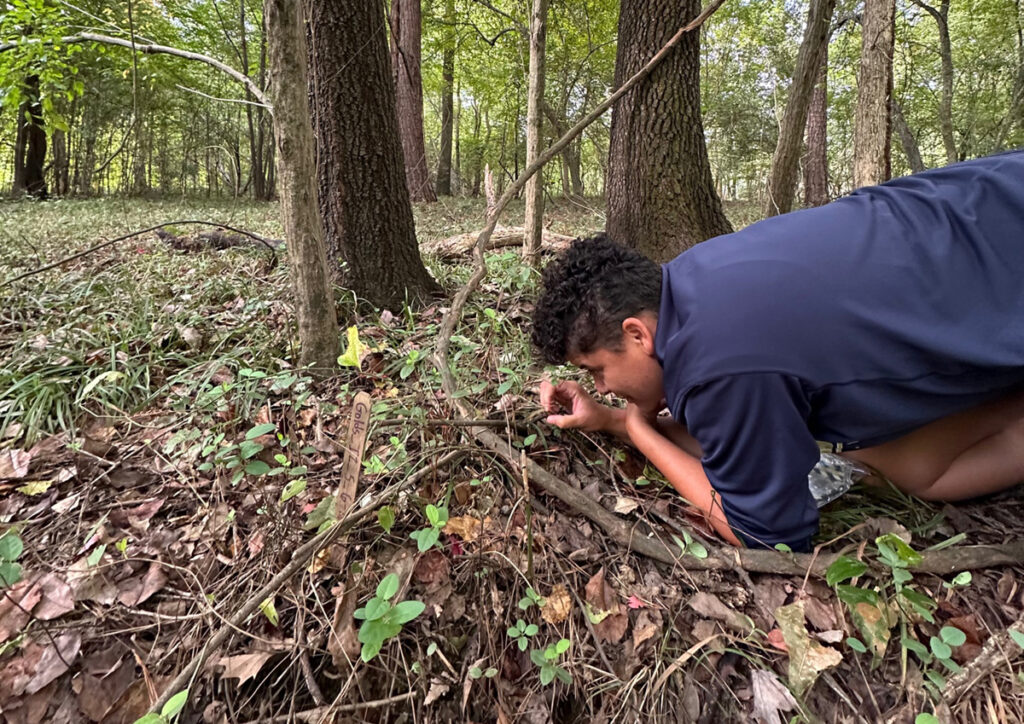
North Carolina Environmental Justice Network's Dr. Chris Hawn looks for a funnel weaver spider web in the woods near the H.F. Lee plant in Goldsboro.
Neuse Riverkeeper Samantha Krop and Sound Rivers Water Quality Specialist Taylor Register were on a mission last week, and not just any mission — they were searching for spiders.
The two joined up with Dr. Chris Hawn, North Carolina Environmental Justice Network’s co-director of research and education, and Alan Capps, owner of Down East Outfitters, for a daylong adventure on the Neuse River, hunting down funnel weaver spiders near Duke Energy’s H.F. Lee coal-processing plant in Goldsboro.
“This research that supports a better understanding of how air quality pollution from fossil fuel industries, like Duke Energy, disproportionately impact low-income and communities of color in our watersheds,” Samantha said.
Funnel weaver webs have a wide, horizontal mouth which narrows into a funnel where the spider awaits its prey. While the webs may be built to capture prey, they can also capture airborne particles, including the heavy metals responsible for air pollution. The concentration of heavy metals in spider webs can vary depending on the location of the web, with higher concentrations found in areas closer to roads or industrial facilities.
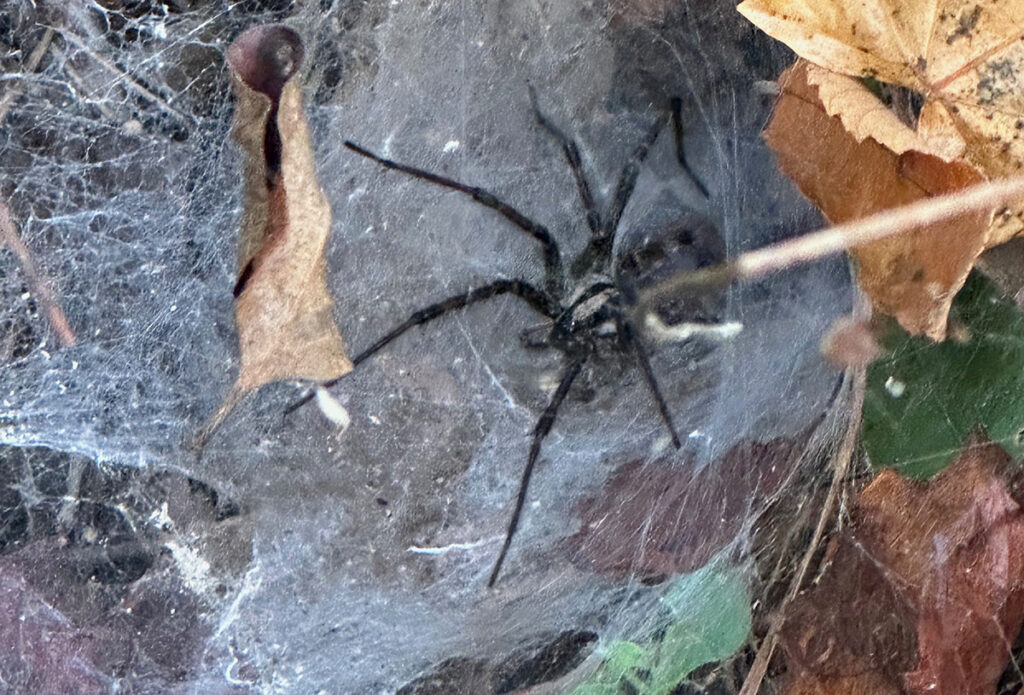
This was the third outing Samantha has made to collect webs in the same location — the first was in September 2023, the second in June 2024 — but it was Taylor’s first foray into “Spidey Sensing.” Since they are specifically looking for the same webs collected previously for comparison purposes, and most of the focus area is inaccessible by roads, each trip requires travel via kayak to comb the banks and woods near the coal ash plant.
“It’s pretty hard to wrap your head around ‘Spidey Sensing’ and the kind of testing that the EJN is doing, but the science behind it is just so cool,” Taylor said. “We had a lot of downtime while paddling to learn about the entire process of actually testing the webs, and how they use the timeframe of sample collection events to estimate accumulation of contaminants over time.”
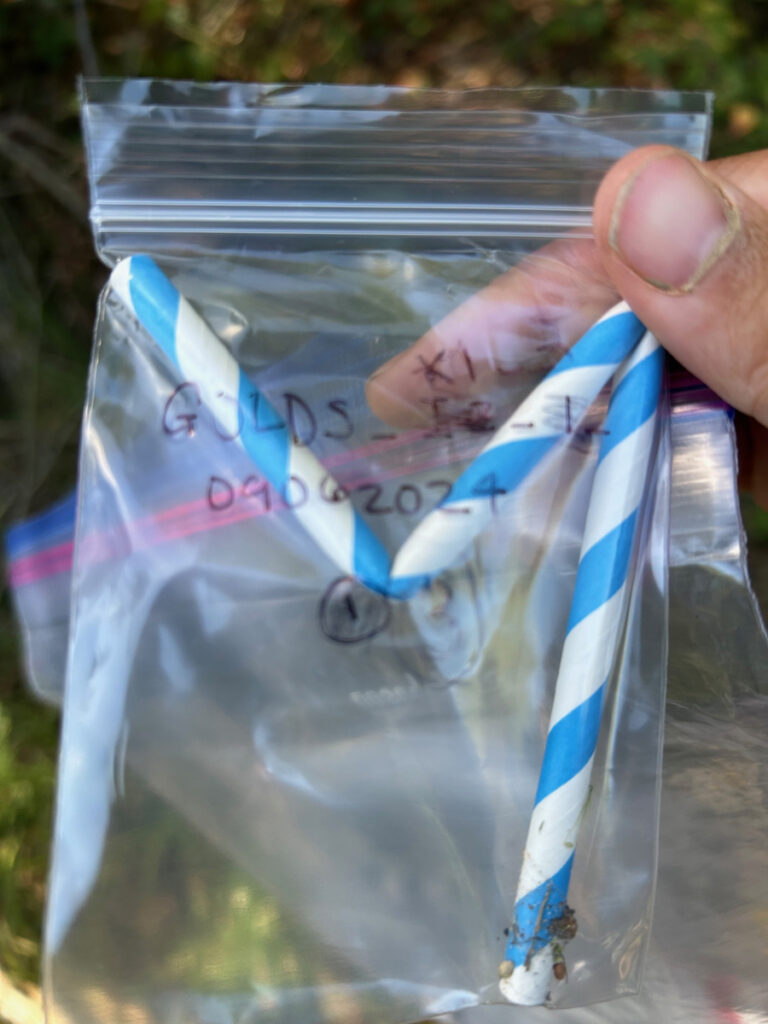
No spiders were harmed during the collection, Taylor said. In fact, so long as the “funnel” part of the web remains intact, the spiders rebuild their webs within days.
“This type of collection is not harmful at all and is more of a mild inconvenience to the spider,” she said. “It’s definitely a very unique method of analyzing pollution impacts, and trudging through the woods to look for the spiderwebs is honestly so much fun.”
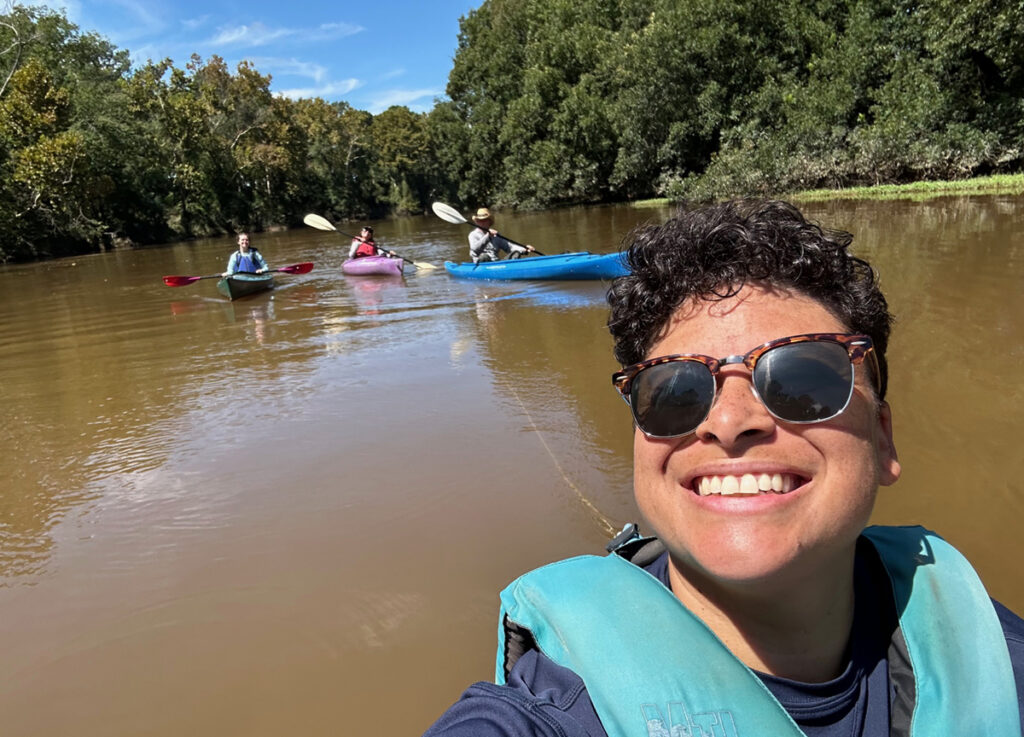
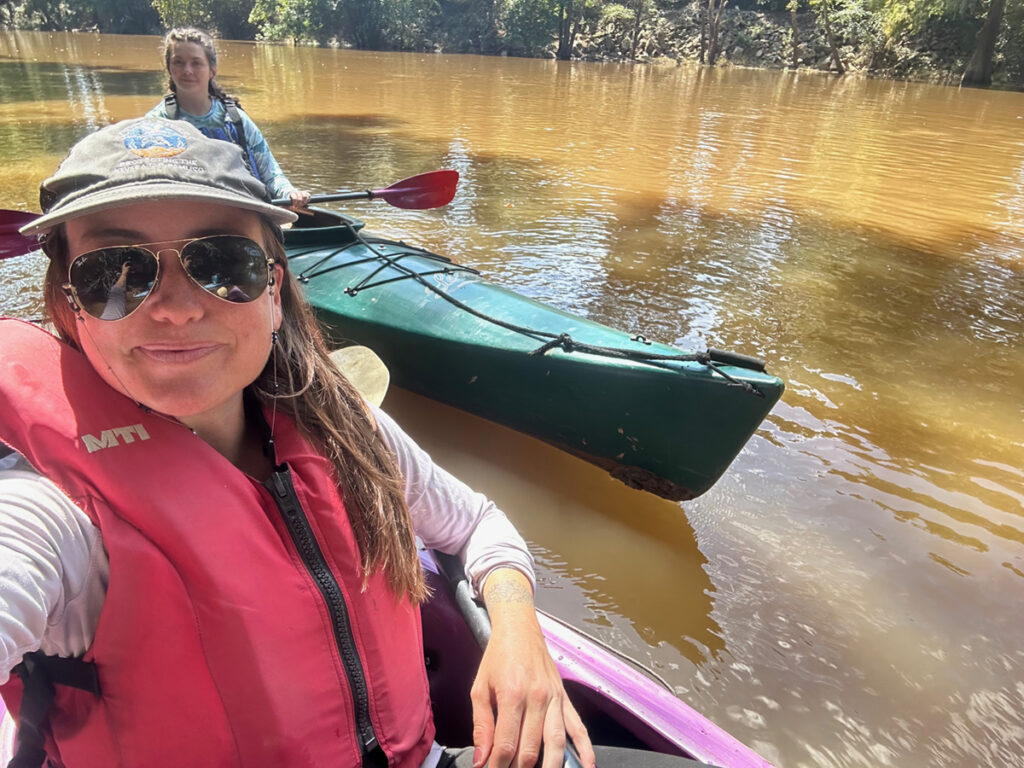
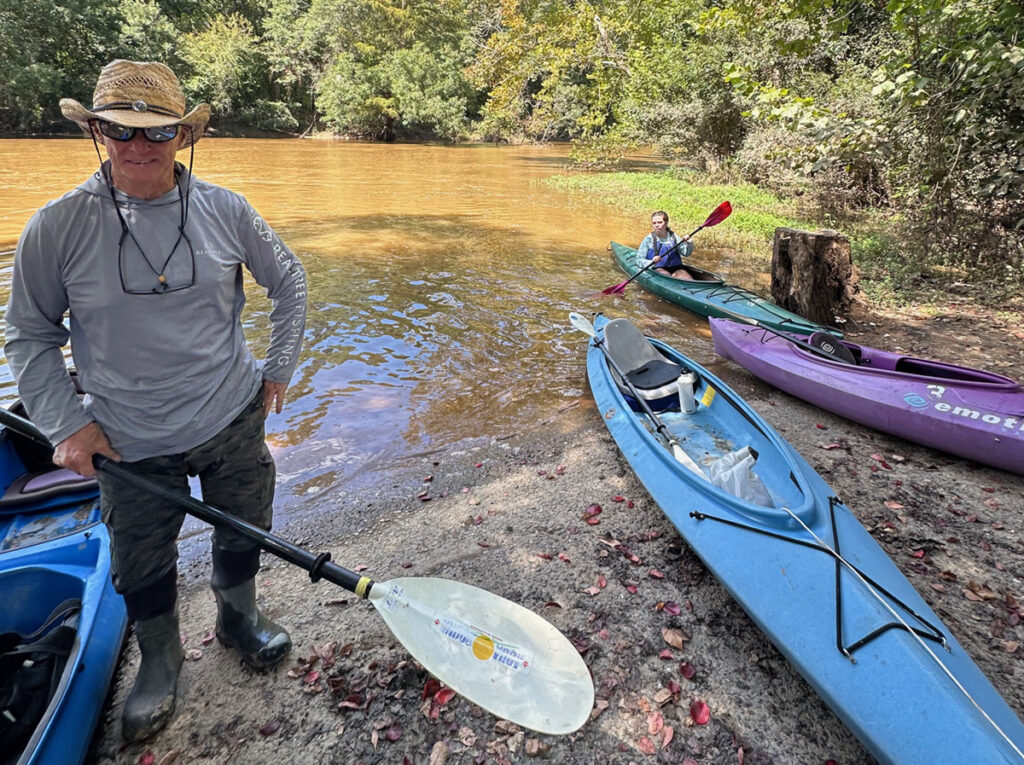
Related News

Sound Rivers responds to EPA killing landmark climate change finding
February 19th 2026
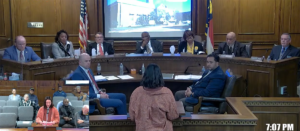
Riverkeeper talks data centers with Edgecombe County commissioners
February 19th 2026
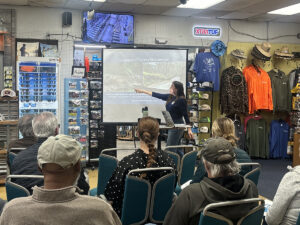
Water Watch hits milestone
February 19th 2026
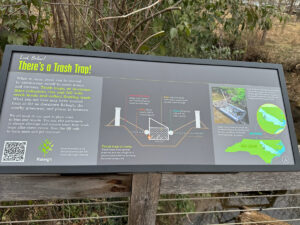
Trash trap sign educates Wetland Center visitors
February 19th 2026
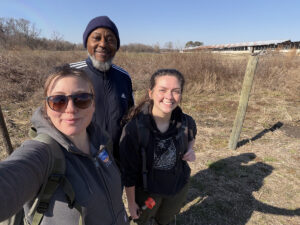
‘No evidence of cleanup’ at polluting biogas facility
February 12th 2026

Durham agrees to more transparency on developer ‘loophole’
February 12th 2026

ECU class mapping out Blounts Creek groundwater modeling
February 12th 2026
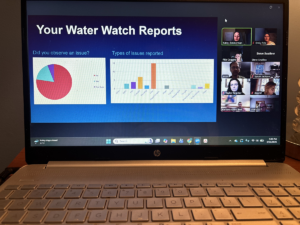
Quarterly Water Watch meeting draws a dedicated crowd
February 12th 2026
